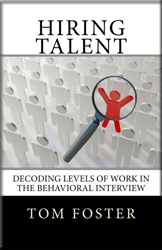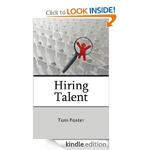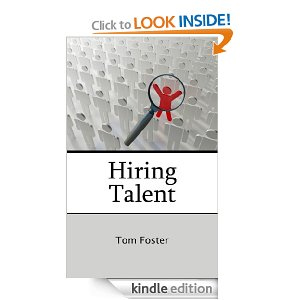I don’t do a lot of book reviews, but this book caught my eye. First, the details
When Can You Start?
by Paul Freiberger
Career Upshift Productions, 2013.
Most often, I sit on the employer side of the table, talking with hiring managers and HR specialists about the hiring process. When Can You Start? is written for the job seeker, so it was interesting to see things from the other side.
Most of the book is predictable advice –
- Show up on time for the interview
- Practice answering questions to common interview questions
- Never throw the first number in salary negotiations
But there were some insights I had never considered. “The fact that interviews have not been shown to have much predictive power in relation to subsequent job performance has not made the interview less important or less popular among employers.” I had to close my eyes and do some soul-searching on that one. Freiberger cites a 1994 paper published in the Journal of Applied Psychology.
Does throwing darts at a resume board yield better candidates than a job interview process? Now, that is an interesting question.
My first instinct is to discount the observation, but admittedly, after watching the interview process in a few hundred companies, I am thinking about some dartboard practice.
Freiberger’s book is to prepare the unwitting candidate to endure an interview process that is largely broken, in most cases, dysfunctional. He admits the interview is full of traps and in some cases advises the “smart candidate to play the game by answering the question without actually answering the question.”
Hiring managers don’t interview candidates often enough to get good at it, are seldom trained to conduct effective interviews and rely on faulty assumptions throughout the entire process. Most managers are unprepared. They ask the wrong questions and allow stereotypes to get in the way. They end up making a decision within the first three minutes of the interview, based on misinterpretations and incomplete data.
So, When Can You Start? is a decent primer for both the first time job seeker and the veteran job seeker who forgot what it was like sitting across the interview table.


